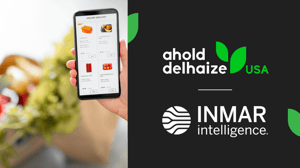A fresh connection
United Fresh 2014 focuses on meeting consumer demand, transportation and food safety.
January 1, 2018
United Fresh 2014 focuses on meeting consumer demand, transportation and food safety. With consumers’ demand for fresh produce at an all-time high, industry leaders are attending the United Fresh 2014 convention this month to learn the skills needed to support this destination category and drive fresh produce sales. The upcoming United Fresh convention, sponsored by the United Fresh Produce Association, based in Washington D.C., is set for June 10-13 at McCormick Place in Chicago. The show features an educational agenda that covers industry trends, innovations and supply chain strategies that United Fresh officials encourage all growers and shippers, fresh-cut processors, wholesale distributors, retailers and food service operators to capitalize on. United Fresh 2014 is co-located with FMI Connect, the redesigned annual food retailing conference sponsored by the Washington, D.C.-based Food Marketing Institute (FMI). United Fresh officials are excited by the partnership as the event signifies an even bigger endeavor. In an unprecedented move, the two organizations have entered into a three-year plan to host each of their annual trade shows and educational conferences together in Chicago. “Food retail customers are seeking to increase their knowledge and use of fresh products, making the produce section a critical point of differentiation,” says Leslie Sarasin, FMI president and CEO. “United Fresh and FMI’s collaboration strengthens our ability to provide event-goers with solutions to grow basket size, increase customer trips, improve margins and increase market share.” Between the two conventions, attendees across the retail and fresh produce industries will have the opportunity to connect with potential and existing business partners and discuss how fresh produce innovations can grow their overall businesses. The keynote address by Former Secretary of State Hillary Rodham Clinton, on Tuesday, June 10, as well as the breakfast keynote address by television sportscaster Greg Gumbel on Thursday, June 12, will each offer insights into how companies can achieve peak performance levels, and business success. Merging these high-level details with an explicit understanding of current and future trends in the supermarket retail industry will help companies think differently about their business strategies, say industry observers. For example, on Wednesday, June 11, Ed Crenshaw, CEO for Lakeland, Fla.-based Publix, will discuss the grocer’s “service-oriented” retail approach. For many, this includes keeping a keen eye on their shoppers’ needs—of which Millennials are a priority. Based on the estimated $600 billion dollars that Millennials spend annually in the overall retail market, observers predict this generation will dictate the future of supermarket assortments, including produce. However, the aging Baby Boomer segment still has the most discretionary income to spend on their favorite brands—and produce remains high on their shopping lists. “As health and nutrition remain priorities for Boomers, there is a lift in sales among these aging Americans,” says Maggie Bezart Hall, vice president of trade and promotion, for Avocados From Mexico, based in Irving, Texas. “Some may be concerned that the purchase power is shifting to Millennials, but the Boomers still have the most money. Our internal research reports that this is our biggest customer segment, outside of the Hispanic population.” Regardless of age, all segments are integrating fresh produce into their lifestyles—as well as demanding more selection and convenience during their shopping trips. This puts industry leaders in the hot seat to learn the techniques required to drive shoppers to their stores when making fresh purchases. “Supermarkets are still king, but other formats are carving out space for produce, further increasing competition,” says Ray Gilmer, United Fresh Produce Association’s vice president of issues management and communications. “This requires the industry to offer more convenience, service and the freshest assortments if they want to drive shoppers into the stores.” As a result, more companies are seeking solutions that can streamline inbound shipments of fresh produce. The session, “Transportation: The New Critical Control Point in Produce,” will discuss how companies can protect shipments, and cost-effectively comply with newly imposed Food Drug Administration (FDA) regulations. McKay Transcold, a Minneapolis-based third-party logistics solutions company, hopes to augment this conversation with the introduction of its independently operated refrigerated boxcar unit train. The service, which runs between Illinois and California, consolidates and transports shipments equivalent to a capacity of 200 truckloads. “Tightening the supply chain gives our business customers more options to improve shipments, which translates to fresher product,” says Jason Spafford, vice president of business development for McKay Transcold. “The service also helps them discover cost savings across their overall transportation and logistics operating costs.” Currently there are between 15 and 20 companies, including growers, retailers and wholesalers, using the service. McKay Transcold plans to discuss the service’s benefits to potential customers at the event. Attendees can also get updates on how to protect their fresh produce. As a result, there will be a track dedicated to food safety topics during “Show Floor Learning Centers.” Led by business experts and thought leaders, these interactive discussions will focus on industry hot-buttons, including The Food Safety Modernization Act and its impacts in North America and abroad; safe-food handling techniques; Listeria guidelines and best practices and overall safe handling strategies. “With such rapid change in the industry, compliance issues are growing at lightning speed,” says Vincent Choate, director of marketing at Hollandia Produce, based in Carpinteria, Calif. “There have been guidelines for years across different industries, including pharmacy, the meat industry, even supply chain. Now it is the produce industry’s turn to get involved in compliance and mandates that can protect all of us.” At the core of these mandates is the Produce Traceability Initiative (PTI), an effort that outlines case-level electronic traceability in the produce industry. The initiative evolved following the 2006 E.Coli outbreak, a crisis that was blamed on poor processing plant conditions that enabled pathogens to spread. While PTI still remains voluntary, industry giants, including Walmart and Publix, are mandating their fresh suppliers affix PTI-compliant labels on all shipments. Showcasing innovation Taking a lesson from United Fresh 2014’s tagline, “Produce Innovation Starts Here,” attendees can visit the trade show floor to research the latest product innovations on display at McCormick Place in Chicago. Here is a sneak peek at some of the innovations that will be on display. Avocados from Mexico With consumption growing annually, Avocados from Mexico will premiere its fall and winter promotions. The Irving, Texas-based company will also share insight into why avocados “are a fun, healthy fruit,” says Maggie Bezart Hall, the company’s vice president of trade and promotion. Avocados from Mexico will also feature its in-store campaign “El Mejor Partido,” or “Best Game Ever,” focused on the World Cup soccer tournament. The program, designed to encourage the consumption of avocados during soccer celebrations, targets 800 high-density Hispanic stores in key markets, including Texas, Chicago and various cities on the East Coast. This fully integrated program will consist of branding, consumer promotions and in-store events. Bland Farms Bland Farms will promote the longevity of Vidalia onions. “There is a misconception that the onions are not available after July 4th, but we plan on educating retailers on volume and storage options so they can be stocked well through the summer,” says Delbert Bland, owner/president of Glenville, Ga.-based company. Company officials will also talk about its sweet onion and sweet potato categories, both available in October and November. “Both items travel well together, which helps grocers optimize transportation costs, as well as rotate stock twice as fast,” he says. Dole Food Co. Using a dedicated business suite on the show floor, Dole Food Co. will meet with customers to discuss its summer “Peel the Love” campaign. “The campaign highlights the fun, irreverence and universally beloved aspects of bananas and pineapples,” says Bil Goldfield, director, corporate communications for the Westlake Village, Calif.-based company. Dole is expanding the campaign by commissioning two nationwide Banana Cabana tours. “This enables us to stop at twice as many retailers and special events as we did in 2013,” he says. “Last year’s tour of 10 cities has grown to 26 cities in 2014.” The Banana Cabana events will engage consumers through staff cooking demonstrations, dish-preparation highlights, recipe booklets, games and visits from company mascot, Bobby Banana. A steady stream of social media, blogs and registered dietician interactions will report Banana Cabana events, and engage new legions of banana ambassadors he says. Hollandia Produce Interest in organics is on the rise and antioxidant-rich superfoods are growing in demand. Officials for Carpinteria, Calif.-based Hollandia Produce will talk about how their Life Gourmet brand’s Living Upland Cress and Grower Pete’s Organic brand’s Living Watercress have become certified antioxidant-rich superfoods. Both items were certified by SCS Global Services, a third-party certifier of food quality and safety, and item packages feature an “Antioxidant Superfood” certification label. “By putting information on the package, we are promoting transparency, educating consumers and helping our products stand out among competitors,” says Vincent Choate, Hollandia’s director of marketing. Paramount Citrus Leveraging the increasing growth of the citrus category, Paramount Citrus is using the trade show floor as a platform to discuss its summer programs for lemons, limes and oranges. The Delano, Calif.-based company will also discuss the launch of its Wonderful Halos Mandarin oranges, and illustrate how this California-grown product introduction has become a popular Mandarin brand throughout the country. Renaissance Food Group Leveraging consumers’ pursuit of healthy lifestyles, Renaissance Food Group, a wholly-owned subsidiary of Calavo Growers, will display fresh salads, and convenient fruit and vegetable items, especially those that satisfy “shoppers demand for convenient and light grab-and-go snacks,” says Rachelle Schulken, marketing event manager, for Rancho Cordova, Calif., based Renaissance Food Group. Calavo, which will be sharing the booth, will display commodity items, including tomatoes, papayas, avocados and pineapples. Viva Tierra Organics Viva Tierra Organics will be displaying their apple and pear varieties originating from Argentina and Chile. Officials for the Sedro-Woolley, Wash.-based company will also discuss its California harvest underway in July, followed by crops later in the season from Washington. “We will talk to retailers about establishing a year-round organic apple and pear program so they have variety and selection throughout the growing season,” says Addie Pobst, organic integrity and logistics coordinator. “Continuity is key. A year-round continuous plan keeps the store stocked and drives sales.” Wholesum Family Farms In addition to providing access to its recipe database and point-of-service signage encouraging shoppers to support fair trade, Wholesum Family Farms, based in Nogales, Ariz., will feature its Wholesum Harvest Grilling Squash (yellow and zucchini), now available in self-sealing bags. The bags also feature recipes and QR codes that connect consumers to the company grower video and recipes. The company is also featuring mini and seedless cucumbers.
About the Author
You May Also Like




